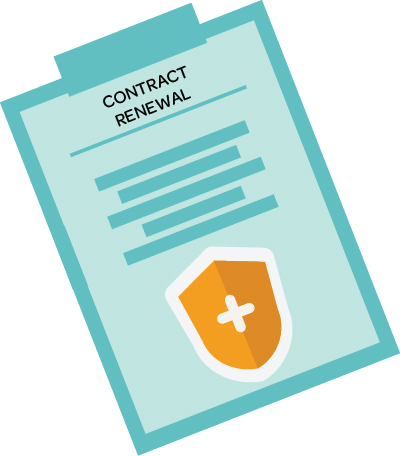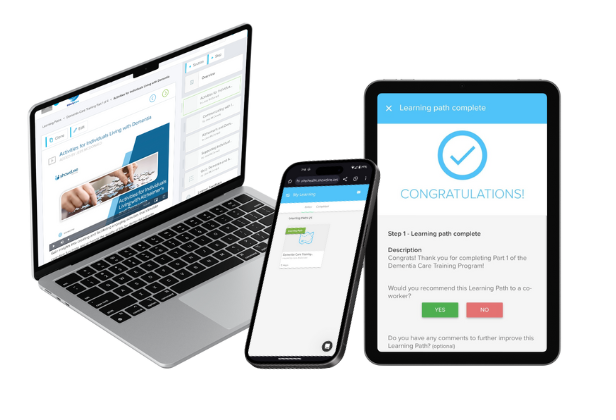HOW DOES EACH INDUSTRY BENEFIT?
While all industries benefit from onboarding and orientation, this ebook will focus on 4 overarching industries: Healthcare, Retail, Hospitality, and Restaurants/Quick Service Restaurants (QSRs).
Healthcare

Healthcare is one of the most regulated industries in the United States. Strong healthcare onboarding and orientation provides multiple benefits in ensuring that employees stay compliant with all regulations. Onboarding ensures that all new hires are up to date on medical knowledge, know how to provide quality care to all patients, and makes them more likely to remain with their organization.
According to the National Healthcare Retention and RN Staffing Report, hospitals lose 5.2 to 8.1 million annually due to staff turnover. Proper onboarding can cut this cost tremendously, because it can improve the retention rate and overall help the organization's bottom line. In a 2017 study, it was found that implementing a strategic plan reduces turnover by 50 percent. If new hires experience a smooth onboarding process and have a positive first impression of the organization, the transition into their role and their care for patients will be quicker.
Retail
A great onboarding program has many benefits for retail companies, especially considering that Retailers report some of the highest turnover rates out of any industry. The majority of retailers are made up of part-time or seasonal workers, which makes the industry at a higher risk of those workers leaving and looking for other opportunities. Because of this, it is important to hire the right retail workers, and provide them with a great onboarding and orientation experience.

For retail workers, the best time to set up an onboarding and orientation experience is on day one. Making sure that hires feel welcomed and reassured on their first day by providing a welcome kit including a name tag, T-shirt, or other personalized items will create a positive orientation experience from the beginning.
Then, providing help and advice throughout the first few months will provide a good onboarding experience. A well executed onboarding and orientation strategy can be the difference between employees who quit within months and those who stay and continue to grow with the organization.
Hospitality
The first step in hiring the best candidate is creating an organized onboarding strategy. Onboarding is the pillar to customer satisfaction, which is the backbone to the hospitality industry.
Employees are the face of any hospitality industry and they interact with guests every day. Setting the standards and explaining the processes from day one will make a more consistent line of business for a hospitality organization.
Hospitality industries can use the first few days to a week for orientation, which can help employees feel more confident and excited to be a part of the job. This could be the time to have new hire bonding activities like scavenger hunts or company quizzes, to promote a culture of teamwork.
Onboarding can be a longer process, and can consist of a seasoned employee mentoring the new hire and being a sounding board and support system if they have any questions or concerns.
Proper onboarding and orientation is extremely crucial in this industry because well trained employees will improve the customer’s experience.

Restaurants/ QSRs
No matter if it is a waiter, cook, hostess, or dishwasher, every team member of a restaurant should experience a great onboarding and orientation experience. Every restaurant is different, so going over the policies and expectations such as dress code, behavior, and staff meals are important to establish during onboarding and orientation.
No employee wants to be left in the dark, so providing clarity on shifts, breaks, scheduling system, and how to cover shifts is something that should be included in the orientation efforts during their first few days.

Then, providing check-ins when they are at their respective stations will allow for an open line of communication on how they are acclimating to their job. A thorough orientation and onboarding process prevents turnover by showing the new hire that the company is investing time into their training. Creating this impression early on will be beneficial in the long run.
Further Reading

Let Us Show You More
See how showdme's unique service-first approach to training helps hundreds of healthcare organizations ensure compliance. Request a demo today!

